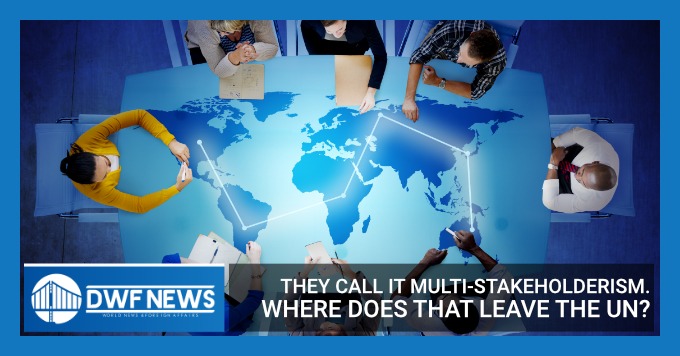Written By Harris Gleckman
Senior Fellow | Center for Governance and Sustainability
October 12, 2019
Article originally published by PassBlue
Global governance is slipping away from the United Nations.
Whether it is in managing the Internet, where the UN’s governing structure offers only an advisory role for governments; or climate change, where the most exciting actions are now corporate-led partnerships outside the UN Framework Convention on Climate Change; or the Gates Foundation-sponsored Gavi, The Vaccine Alliance, which is in a tug of war with the World Health Assembly on who sets health policy in developing countries, the institutional basis for global decision-making is changing.
Where non-governmental organizations were once the largest nonstate entities attending UN system meetings, transnational corporations have become the biggest players. They participate in well-attended public-private partnership sessions at the UN Conference on Trade and Development, the Human Rights Council and the High-Level Political Forum, the key body for following up on the Sustainable Development Goals.
The latest institutional foray is a World Economic Forum-UN partnership agreement. Under this arrangement, senior UN leaders are invited at national, regional and international levels to interact with forum members, many of whom are actually causing the global problems that the UN system is tasked to fix, such as climate change.
These developments are part of a new global governance approach, one in which a team of corporate executives, leaders of civil society organizations, officials from governments and the UN system, academics and other players take on the governance of a specific international challenge.
In the economic, social and environmental fields, this governance arrangement is called multi-stakeholderism, as each new global decision-maker is said to represent a “stakeholder” in an issue. In practice, these governance arrangements can have a role equal to or greater than the one held by the intergovernmental body officially assigned to address a universal problem . . .
What is World Federalism?
World Federal Government (WFG)
Original Publisher
PassBlueHarris Gleckman is a senior fellow at the Center for Governance and Sustainability, UMass-Boston, and director of Benchmark Environmental Consulting. His latest study, “Multistakeholder Governance and Democracy: A Global Challenge,” was published by Routledge in 2018. He is the former chief of the New York office of Unctad, among other previous roles. For 30 years, he undertook policy-oriented research on multinational corporations, global environmental management, financing for development, global governance institutions and the economics of climate change.
Related Articles
ARTICLES FOR THIS ISSUE: DWF NEWS APRIL 18, 2024
Israel's sickening history of crimes against humanity Dead on Arrival: Israel's Blowback Genocide Ellen Cantarow Iran puts Israel on notice The Missiles of April Scott Ritter U.S. Government Bullies Weak Nations Eric Zuesse Does Project 2025 suggest a 'Taliban...
Articles for This Issue: DWF NEWS April 4, 2024
Israel's Meddling in US Politics Is Aggressive & Unceasing Branko Marcetic Germany's economy sucker punched by U.S. The Stupidity and Vileness of the U.S. Empire's Leaders Eric Zuesse The Rapture, Armageddon, & the Second Coming No topic in...
Articles for This Issue: DWF NEWS March 21, 2024
Is the U.S. a "criminal" rogue nation? Expel the US to Rescue the UN Shahid Bolsen Middle Nation To Save Israel, US Destroys International System It Built Ramzy Baroud Consortium News The Earth Constitution Could Transform the UN General Assembly and the UN...
Solving Global Problems
We can work together to make the world better


Ihre Aufstellungsorte Anforderungen für Syndikatsbildung von Ihr Eintragungen? I sein extrem innen intrerested übersetzend einige von Ihre Aufstellungsorte Pfosten in Französisch für meine Aufstellungsorte Leser und möchte wissen was Ihr Meinung auf diesem sein. I werden Sie selbstverständlich seien Sie sicher hinzuzufügen eine Verbindung zurück zu Ihrem Aufstellungsort
http://www.xmc.pl